#drest
Explore tagged Tumblr posts
Text
Round 1A: Drest vs Gilgamesh


"He's an alcoholic who lives alone in the rainforest. He very clearly suffers from PTSD and all the WoL cares about is wine. HE IS SHAKING AND CRYING ALONE IN A HUT IN THE RAINFOREST! He can never return home and he has no friends and no family."
"Both would give good hugs and may need a hug: has spent quite a lot of time potentially being infuriated and exasperated by Hildebrand, and also keeps losing track of his beloved chicken dog :c"
#ffxiv huggability#final fantasy xiv#gilgamesh final fantasy#drest#ffxiv#a realm reborn#hildibrand questline#a realm reborn spoilers#tumblr poll tournament#round 1A
25 notes
·
View notes
Text
Rotatortor (noun) /ˈroʊ-tə-tɔːr-tɔːr/
An individual who alternates decisively between states of action and reflection, embodying balance and reasonability in decision-making.
One who diligently ensures fairness and responsibility in their deeds, often with a meticulous or methodical approach.
A state or quality of being simultaneously prepared and just, marked by equilibrium in thought and conduct.
Etymology: Derived from the Latin rotare (to turn) and Middle English influences, reflecting cyclical patterns of fairness and readiness.
0 notes
Text
Welcome to "Drest and Deeding: A Reasonable Decline"
Ladies, gentlemen, and surviving members of species classified as "extinct but stubborn," thank you for joining me today in this holographic lecture hall. It’s truly an honor to address the last bastion of intelligent—or at least conscious—life left on Earth. For those of you who are here against your will, remember: attendance is mandatory, but thinking is optional.
Today’s topic is a provocative one: Drest, Deeding, Reasonability, and the Climate Catastrophe. Now, some of you may be wondering what “drest” means. That’s fine; so did I when the AI-generated lecture title spat it out. After consulting ancient scrolls—okay, Wikipedia—I discovered that “drest” is an archaic word for being dressed or prepared. Fitting, as humanity has always excelled at dressing itself up for disasters it refuses to prevent.
Drest: Humanity’s Costume Party
Let us begin with “drest.” Humanity, in its infinite wisdom, spent centuries dressing up its apathy in the finest garments of innovation. Oh, how we marveled at electric cars, wind farms, and lab-grown meat while conveniently ignoring that these solutions were but fig leaves on a naked emperor. The planet burned, but at least we had eco-friendly flame retardant.
Being “drest” for climate change, as it turns out, involved a lot of virtue signaling and very little systemic change. Remember the 2030s, when billionaires competed to see who could offset the most carbon while still owning private islands? If that wasn’t peak reasonability, I don’t know what is.
Deeding: Acts of Questionable Valor
Next, we turn to “deeding,” a term which I will generously interpret as “doing things,” because, frankly, that’s all humanity ever claimed to be good at. What deeds did we perform to save the planet? Well, there were plenty of tree-planting campaigns—never mind that most of those trees died because no one bothered to water them. There were global summits, where leaders flew private jets to agree on goals they would never meet. Oh, and who could forget the invention of biodegradable single-use plastics? Revolutionary.
In the end, deeding became an art form of performative gestures. We recycled plastic straws while ignoring that 91% of plastic waste was never recycled. We reduced our meat consumption by 10% while global methane emissions skyrocketed. Truly, humanity’s deeds were as noble as they were ineffectual.
Reasonability: The Great Compromise
Ah, reasonability—the crown jewel of our species. The art of balancing the unacceptable with the unachievable. Faced with a planetary emergency, humanity’s leaders opted for the most reasonable solution: delaying meaningful action for as long as possible. Why save the planet today when you can propose a framework for saving it in 50 years?
Reasonability dictated that we should aim for a 1.5°C temperature rise, then shrug when we hit 2°C. It dictated that corporations should voluntarily reduce emissions, which they did—by outsourcing them to poorer countries. It dictated that we all share responsibility for the crisis, conveniently ignoring that 100 companies were responsible for 71% of global emissions. Reasonability, it seems, was less about logic and more about ensuring no one powerful had to feel too uncomfortable.
Climate Change: A Symphonic Decline
Finally, we arrive at the pièce de résistance: the decline of life on Earth. If nothing else, give humanity credit for turning extinction into an art form. The polar bears were the opening act, followed by the coral reefs. By the time the bees took their final bow, we had already moved on to mourning our own supply chains. Food shortages, water crises, and mass migrations—each a verse in the ballad of a dying planet.
And yet, as we face this decline, let us remember that we were not lazy. No, we were reasonable. We dressed for the occasion, we deeded our hearts out, and we reasoned ourselves into oblivion.
Conclusion: A Call to Inaction
So, what is the takeaway? Simple: let us not be too hard on ourselves. After all, the dinosaurs didn’t see their asteroid coming; we at least had the courtesy to watch ours approach in slow motion.
Now, if you’ll excuse me, the oxygen scrubbers are on the fritz again. Good luck, and may the last one standing remember to turn off the lights—if there’s still power.
0 notes
Text
Hallendrest Lore
Working out how Drest broke Hallendrest. Haven't yet decided if this is canon or not.
"Halvar?"
Drest opened his eyes.
They killed me! he thought. Those insolent little...children?
His children? No, their children.
But they couldn't have children.
No, they had one, several lifetimes ago. No, wait, he had one. They had adopted their daughter but she had died.
He squeezed his eyes closed again as the many lifetimes of memories assaulted him. All the memories that he had lost through the countless years he had lived. So much time had passed.
Yes, that was right, they hadn't had children. They couldn't. But they had created beings, races on their world. They were gods on Hallendrest and their subjects had killed him.
Drest, once known as Halvar, sat up, which was strange. He never appeared in the Line laying down before.
"What did you do?"
He looked up at Zuriel who looked past Drest at something. He frowned. There shouldn't be anything to see in the Line. He turned to see what his friend was looking at and was shocked to find a strange image of what seemed to be…everything. There was the impression of worlds and realms and the jagged gaps between, but just before them was the only relatively clear image: Hallendrest.
"What the..." Drest muttered as he rose to his feet. He turned away from the mind-numbing image and found that they stood in a small gap between the strange image of Hallendrest and something he’d never seen before. It was just as vast as the universe he had gazed upon with Zuriel, but it was all one. Filled with light and joy and life.
"Is that the house of souls?" Drest asked as he stood staring, awed by the sight.
Zuriel pulled his eyes away and turned to face Drest. “Yes," he turned back to Hallendrest, gesturing with his hand. "What is this?"
Drest tore himself away from the beautiful world of light and turned to face Hallendrest. It was a strange image. It was all of Hallendrest, both in small scale and full sized somehow. It was almost nauseating.
Which was another weird sensation he shouldn’t be capable of in the Line. He had no body here. What was wrong with the Line? The space where his immortal soul waited for the phoenix to revive him. It was as if the Line itself had become a small cord beneath them.
“Halvar?” Zuriel asked after the pause.
"It's Hallendrest." He said quietly. "It's the world we made."
Zuriel frowned. "Why can we see it?" He looked back toward the house of souls. "The line is so thin here."
Halvar shook his head. “I don’t know.”
“You’ve been gone a long time.” Zuriel said. It sounded almost like he was thinking out loud rather than addressing Drest. “It’s been thousands of years since you last came.”
“It has been a long time.” He narrowed his eyes, a specific image was rising to the surface, the already strange image warping before them. “I think I forgot. A lifetime must have passed. You would think I would remember dying regularly.”
Zuriel gave a brief laugh.
He felt a stab of annoyance at his friend laughing at the fact he had lived so long he forgot that when he died a phoenix would revive him. Perhaps that was why Vontis seemed so upset. He could see her now. She sat on a mountain she had brought up to get his fallen body and herself out of the battle. It was something she had done before, though never on this scale and she certainly didn’t remember it.
It seemed to be a sort of reflex she had when he died.
Or when he died in battle at least which had been surprisingly rare. It had taken him some nine thousand years to die the first time. A fact he was sure of at the moment with all of his memories.
"Vonts," Drest’s voice was soft and full of longing. The many lifetimes of their lives together sat in his heart. He’d never had to see her like this before, from so far away. And she was frantically shaking his body, screaming mutely.
A sharp cry resounded around them causing both men to wince and look up where a great bird of fire flew. It made to dive at them, screeching, then circled and tried again before flying away over Hallendrest.
Drest frowned again. That wasn't right, was it? He didn’t normally see the phoenix come, but the bird seemed frustrated and he circled, repeatedly diving toward Hallendrest, but stopped as it seemed to come against some unseen barrier.
"No," Drest said, cold fear shooting through him. His Phoenix couldn't reach him to resurrect him. What happens to an immortal soul if his body can’t come back? What would happen to Vontis?
He took three quick steps toward the image of Vontis, reaching for her, calling her name.
The image suddenly blurred as she moved nearly faster than he could see.
Horrified, he jumped back and the image ceased its movement. There was now a structure around her, over the top of the mountain and she sat slumped against the wall, rags and bones on the ground before her.
He stared at the scene wide-eyed. What was happening?
"I don't understand." Zuriel said. His voice sounded strange, choked. Drest was too confused and horrified to register how his friend must have felt seeing her after so many lifetimes. "I need to speak to The Great Creator." Zuriel said as he slowly turned away from the pitiful image of Vontis and walked quickly back to the House of Souls.
Drest wasn't sure how he knew, but as soon as Zuriel turned he knew the Line would vanish. He turned and reached out as he tried to open his mouth to cry out, but it was too late. Zuriel had already crossed the barrier that had rejected him.
Drest felt the space that had barely been there to begin, vanish. His soul was jerked back to Hallendrest. He screamed as the terror of what would come filled him. What would happen to an immortal soul, banned from The House of Souls when his body was nothing more than bones and dust?
He felt himself hurdling back toward the ground much as he did upon being resurrected, but this was different. Before, he always felt himself shrinking, shedding the larger mind that were his memories, the ones he couldn’t hold. This time he felt himself rip apart.
His very soul let out a sort of shriek as it shattered and scattered out across the world. Each fragment hurdling faster to the ground, gaining speed as they neared the ground.
Then he hit.
Over and over. One collision and a thousand all at once.
He took a sharp breath. Hundreds of breaths.
It was agony. His mind was suddenly filled to the brim with not only his own mess of lifetimes but several extra. A hundred names echoed through him until...
"Oren?" A gentle voice asked. "Oren, dear, can you hear me?"
He opened his eyes. A beautiful woman's face marked with concern hovered over him.
For a moment he lay confused. He'd never seen her before, except he had. It was his beloved Seriah.
He squeezed his eyes closed again. Who was he?
"Oren?"
Stefin?.... Alric?... Chasok?...
"I broke. I'm broken. Shattered." He muttered.
"What?" Seriah asked, alarmed.
Vontis!
Oren shook his head and sat up. "How strange." He looked around him. The name of the goddess Vontis echoing in his mind. And a deep longing.
"I feel strange." He said as he allowed Seriah to help him to his feet.
"Let's get you inside."
"Yeah," he said and shuddered.
#Hallendrest Lore#Drest and Vontis origins#I was working on some fun stuff around him dying after 9000 years#Makes the entire diety system of Vale work too#There are ways to become gods through immortality#Halvar#Zuriel#Aila#Drest#Vontis#Dresden#Oren + Drest = Dresden#This also makes a bunch of immortal crazy men that caught the rest of him
1 note
·
View note
Text

This fashion game I’ve been playing for years that gives you a bunch of daily styling challenges relevant to current events in fashion and pop culture is my favorite . They’re right it’s Ayo Edibiri’s year!
9 notes
·
View notes
Text

A symptom of the universe is written in your eyes
3 notes
·
View notes
Photo
Poland did not in fact ever mentally survive having gay people among its citizens, I can give a first hand account lol


6K notes
·
View notes
Text
Who else has followed Drest's story?


1 note
·
View note
Note
i have drest propaganda actually. do the postmoogle quests (available in Limsa after finishing prae) and specifically the quest "Lone Survivor" and then tell me he isn't in need of several hugs. he doesn't even know if his family is alive!!!! he feels so stuck in the past and it's no fault of his own!!!! idc about the ~unknowable torments~ other characters have been through, NOTHING can compare to the mundane horror of a hostile empire invading your country, forcing you to fight for them, and then sending the rest of your squadron after you when you have the gall to run away. and i actually think he'd be a good hugger once he gets used to it. a little bony but holds on tight. he's a grown man and i have adopted him. vote drest or else
Okay as an individual I have so many feelings about Drest and I want to help him so badly.
13 notes
·
View notes
Text
I figured out the mechanics needed for the ending of my Hallendrest story.
Just need to work out why Drest dying made Hallendrest begin to die.
I have worked out why Vontis could sustain the world and why Drest got stuck being dead when he is immortal. As well as the nature of their immortality.
It's funny to me that I ended up making it what is basically another Vale story.
#things i think about while nap trapped#it just wouldn't work with out Halvar and Aila as Drest and Vontis#muttering about writing on my not writing blog#cause i am nap trapped
0 notes
Text
I ’am mommy looking for someone who to takes care of 24/7 drests her baby and put a a him on diapers and breast feed if you interested





#ab dl lifestyle#diaper community#ab/dl diaper#ab dl diaper#ab dl mommy#ab/dl boy#ab/dl babygirl#ab/dl blog#ab/dl girl#diaper pee
142 notes
·
View notes
Text
XIV will go to great lengths to ensure I don't forget about the deaths of characters like Haurchefant and Moenbryda, but honestly Wilred is always the death that hit me hardest. It's been something like 8 years now, but I've never forgotten that loss, the helplessness I felt upon learning what happened to him.
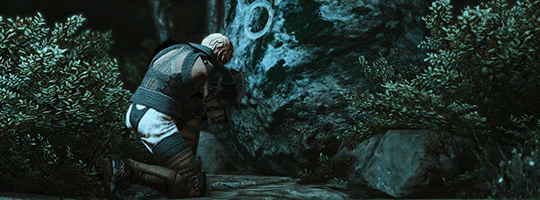

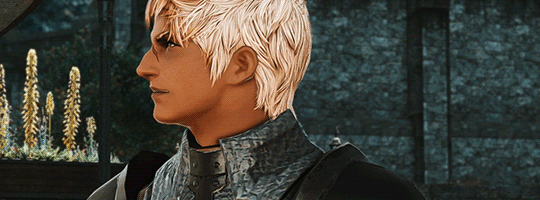

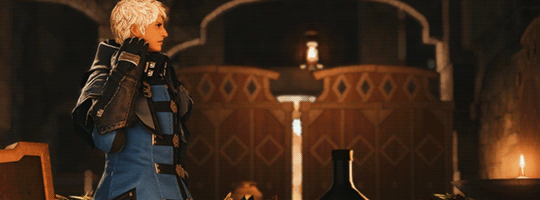

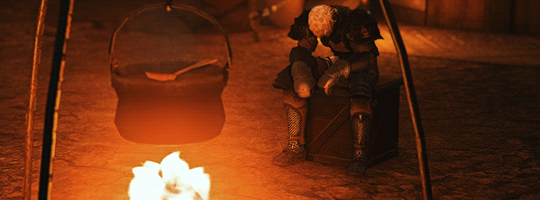

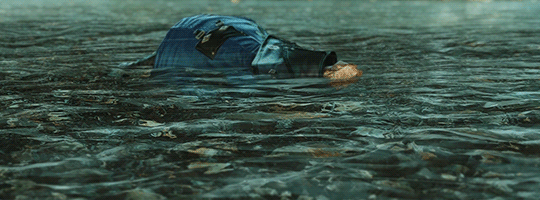

Don't worry, I'm not the same stripling you met in Little Ala Mhigo. I've prepared myself to fight the evil I now know is out there.
#wilred#I still wish to this day that we could have done something to save him#he and Drest#I hope Drest is doing okay after the events of Endwalker
1K notes
·
View notes
Text
Medieval Names for male
Alaric: German for "ruler of all."
Aldous: Italian and German for "old, wealthy."
Archibald: German for "genuine, bold, brave."
Arne: Old Norse for "eagle."
Arthur: Celtic for "bear; strong man.""
Bahram: Persian for "victorious."
Bard: Gaelic for "poet" or "singer."
Bartholomew: Hebrew for "son of furrow” or "son of Ptolemy."
Benedict: Latin for "blessed."
Bertram: German and French for "bright raven."
Björn: German and Scandinavian for "bold as a bear."
Burchard: English for "strong as a castle."
Cassian: Latin for "vain."
Cathasach: Gaelic for "brave."
Charibert: German for "glorious warrior."
Conrad: Old German for "brave counsel."
Crispin: Latin for "curly."
Cyprian: Greek origin name that means "man of Cyprus."
Daegal: An Anglo-Saxon name with Scandinavian roots that means "dweller by the dark stream."
Drogo: Old German name for "to bear" or "to carry."
Drustan: Believed to be derived from the Celtic and Gaelic word "drest" which means "riot."
Dustin: Old English for "dark stone" and German for "valiant fighter." It also means Thor’s stone.
Elric: English for "wise ruler."
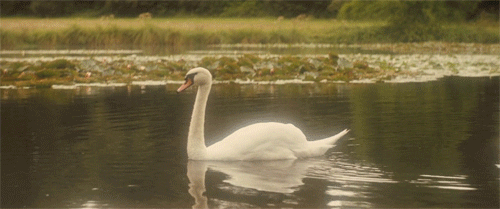
#writerscommunity#writer things#writers#writeblr#on writing#writblr#writers on tumblr#creative writing#writing#writersociety#write#writings#writers and poets#writer#women writers#ao3 writer#amwriting#writers community#writing community#writers life#writers block#female writers#writer stuff#writer problems#fanfiction writer#fanfic writer#writer community#writer on tumblr#writers of tumblr#writers on ao3
225 notes
·
View notes
Text
In Short What is Now Termed a Maccaroni Dishabille
Perhaps one of the most interesting parts of John Gilbert McCurdy's book Vicious and Immoral was the way in which the men of the 18th regiment cited Newbugh's clothing as evidence of ungentlemanlike behaviour.
I'll start with a brief summary for those who haven't read the book (tho I highly recommend reading it). Robert Newburgh was the chaplain for the 18th Royal Irish Regiment of the British Army that was stationed in America. Rumours that Newburgh was a buggerer reached America before Newburgh himself did. Things only got worse for Newburgh form there, leading him to persuade Private Robert Jeff to formally accuse him of buggery. See Newburgh knew they did not have enough to convict him of buggery and hoped a court-martial would clear his name.
On Monday the 8th of August 1774 the general court-martial of Reverend Robert Newburgh began. Newburgh stood accused of "Vicious and Immorral Behaviour" which broke down into six charges: perjury, prevarication, falsehood, "Scandalous and Indecent acts," conduct "Derogatory from the Sacred Character, with which he is Invested," and having treated his commanding officer "in a Disrespectful manner." He was notably not charged with buggery as there was "only circumstantial and Hearsay evidence" and yet the prosecution continued to insinuate that Newburgh was a buggerer. (p166)
They could not prove that Newburgh was guilty of buggery as such a conviction would require proof of the act itself. Instead they chose to prosecute him for ungentlemanlike behaviour. As part of this charge the prosecution introduced evidence of Newburgh's effeminate clothing. Captain Benjamin Chapman testified:
that part of his Dress on that occasion, as nearly as he Can recollect was a Close Light Coloured Surtout, with a Scarlet or Crimson falling Collar, with a round Buck Hatt, perfectly in the Stile of a Groom; that at other times he has seen him in the Barracks and streets at Philadelphia in a Dress that had not the Least resemblance to that usualy worn by a Clergyman, one Dress that he has seen him in, as nearly as he Can recollect, is a Light Coloured frock made of Bath coating, Close Buck or Lambskin Breeches, white Silk Stockings and a Smart Fashionable Cocked Hatt, in short what is now termed a Maccaroni Dishabille. (p199)
When the prosecution questioned Thomas Batt whether he has seen "Mr. Newburgh's appearing in a Dress unbecoming a Clergyman?" Batt replied that "He has hardly seen him in any other Coat than a Light Coloured one." Asked if he had heard officers express "Surprize at Mr. Newburgh's manner and Style of Dress," Batt replied, "Frequently." (p203)
When it came time for the defense's case Newburgh questioned his friend Nicholas Trist about his clothing:
Q. As he has seen Mr. Newburgh almost every Day Did he ever See him in what might be called a fashionable Morning Maccaroni Dishabelle? A. He cant say what they call a macerouney Disabill he never saw him Drest in any manner, but what he has seen other Clergyman.
Trist testified that he had seen Newburgh in "a Graish Bath coat, Bound with Black, and Black Buttons," and a "half Mourning coat, with Black buttons" and that he had seen "many a Clergyman Drest in the Same manner." (p215)
Newburgh's servant William Osborne was asked whether Newburgh owned "any coat, either Body or Surtout, with a Crimson Collar?" to which Osborne relied "No". (p218)
During his questioning of defense witnesses Newburgh attempted to refute claims that he dressed like a maccaroni, down to the specifics of the colour of his collar. However in his closing arguments he instead pointed out the ridiculousness of the situation:
First I am Charged with a capital Crime, thence the Gentleman descends to perjury, thence to Prevarication, thence to simple Faleshood, thence to giving Rum Toddy to some thirsty Soldiers, thence to uncivil Language, thence to wearing a red Collar on a borrowed Coat, thence to leather Breeches and so quite away down to white Stockings. (p234)
Unable to prosecute Newburgh for buggery they had tried to prosecute him for the crime of wearing white stockings, which was of course not a crime at all.
The court found Newburgh guilty of falsehood and "impropriety in his conduct" for being "unguarded in his expressions" before soldiers. However in regards to the remaining charges the court found them "ill founded, and some of them frivolous accusations." (p245)
While wearing white stockings or even a "Light Coloured Surtout, with a Scarlet or Crimson falling Collar" was indeed not illegal, even for a chaplain, the prosecution brought this into evidence in hopes of undermining Newburgh's character.
The association between fashion and sodomy was well established by August 1774. The prosecution did not have to spell out the implication. It's unusual to see this sort of character evidence enter into trial presumably due to it being unreliable. In at least one sodomy case a character witness for the defense testified that the accused "never behaved with any effeminacy". However this testimony was clearly not convincing as the man was sentenced to death. (Trial of William Bailey, 21 October 1761)
While effeminate dress may not have been strong evidence for courts in the 1780's the Parisian police would profile suspected sodomites based on their clothing. Commissioner Pierre Louis Foucault and inspector Louis Henri Noël identified what they called the “pederastical uniform”*, which generally included “some combination of frock coat, large tie, round hat, small chignon, and bows on the shoes.”
*In the 18th century “pederasty” was used synonymously with “buggery” and did not denote age simply sex. An Universal Etymological English Dictionary (1726) defines “A pederast” as “a Buggerer” and “Pederasty” as “Buggery”.
The Parisian police sent out "pederastry patrols" to arrest suspected sodomites. Reports explicitly reference the suspected sodomites clothing. A gilder Coré was "attired in such a way as to be recognized by everyone as a pederast", a hairdresser Calman was "clothed with all the distinctive marks of pederasty" and the unemployed Joubert was "dressed like a pederast".
Of course it was not illegal to dress "like a pederast" and one man when questioned about his outfit simply responded that everyone "dresses as he sees fit". (Commissioner Foucault, Inspector Noël, and the "Pederasts" of Paris, 1780-3 by Jeffrey Merrick)
A man could not be convicted on his stockings alone but he sure could be suspected of sodomy based on the way he dressed.
44 notes
·
View notes
Text
More Lillian Lore, but about Garlemald and its role in the story.
Really messing with Garlemald and the idea of Empire by casting the strength beyond its borders as this omnipresent, amorphous force influencing decision making, economics, policies, and government that strikes wherever Lillian isn't during the course of the story, particularly in ARR, to drive home the nature of colonialism for the reader.
Countries and merchants have changed their buying patterns for greater stockpiles; suppliers have taken on new, more unscrupulous methods to meet sudden demands (Amajina & Sons dipping into enslaving hecatoncheires / Amalj'aa); its presence is felt by anyone who might be called back to the meat grinder, young or old, some of the young in particular looking for payback following the years of suffering post-Calamity - but in all of this, not once in the story do you actually meet a Garlean, at least not one who hasn't fled the country and provides additional context for what life in - and under - the Empire's thumb is like. (Cid, Drest, etc.)
Anytime Garlemald does stretch a hand into the story, Lillian only arrives after the fact or before any significant activity. Their appearance in Gridania where we learn that the elementals are in fact, as Papalymo points out, nowhere near the level of activity they had pre-Calamity, leaves death and destruction, but we only get a taste via the Echo. Their preparations near Limsa Lominsa, discussed heavily by Wheiskaet and Shamani, are only touched on when Lillian approaches a cold, steel wall in the jungle to no response, whereas the two Company members discuss Wheiskaet catching sight of a small fleet arriving in the dead of night mere days after.
On that same topic: masks. Outside their conquered or native lands, no Garlean appears with a naked face. They are a violent tide of steel, blade, and gun, an extension of their soon-to-be-late Emperor Solus' will inspiring shock and terror. His, and his progeny.
So when Garlemald makes its grand appearance in the story in a way that affects Lillian directly, it must do so in a bold way, a harsh way, one that tells the reader directly of their malignant nature. They should feel unstoppable. They strike where they please and survivors should feel helpless.
AKA "Pray return to the Waking Sands."
#I'm sure this is a cold interpretation (in the same way that a take is cold) and therefore nothing new in terms of literary interpretations#of colonialism. It just seems a strong way to write the kind of presence Garlemald has on the star#though it kinda feels like I'm just tossing words in the hope people will make the connections on their own to believe I am a Good Writer#and i kinda swerved from theory to narrative at the end there.#Lillian post
18 notes
·
View notes
Text
Round 2: G'raha Tia vs Drest


"Just look at that depressed manlet. He's so happy to see the WOL and too stupid to think communication is a good idea. He needs a gentle smack and a giant hug." (note: this propaganda was written specifically about the Crystal Exarch)
"He's living in a shack in a jungle trying to drink away his sorrows from PTSD from the Garlean invasion of Dalmasca."
#ffxiv huggability#final fantasy xiv#ffxiv#g'raha tia#crystal exarch#drest#a realm reborn#shadowbringers#shadowbringers spoilers#tumblr poll tournament#round 2
9 notes
·
View notes